
I was inspired to make this omelette for the first time on flicking through Henry Harris’s “A passion for protein” yesterday. I didn’t have such a fine cheese as Henry insists upon but I did have some Cheddar, fresh eggs, Worcestershire sauce and mustard so it seemed the perfect Sunday brunch dish. I was surprised initially by the amount of cheese but this isn’t just a mere cheese omelette, very nice that would be anyway but a Welsh rarebit omelette so the cheese ration has been upped. As you can guess with the tablespoon of Worcestershire sauce, the egg mixture starts off by looking somewhat murky but had a great kick in its aroma. I popped my almost cooked omelette under the grill as I’m rather partial to the little soufflé effect it gives to the finished omelette. I guess it changes the texture a bit and perhaps stops the omelette being so runny. I don’t mind my omelette either firmer and gently souffléd or softer and creamier but today I went for the former.
Welsh Rarebit Omelette
From Henry Harris’s “a passion for protein” - serves 1
3 free range eggs
½ tsp
¼ tsp English mustard
1 tbsp Worcestershire sauce
Dash of
100g best mature Cheddar (Quick’s, Montgomery or Keen’s)
15g unsalted butter
Break the eggs into a bowl and beat well. Stir in the remaining ingredients, except the butter, season with salt and a good milling of black pepper and mix together.
Heat the butter in a non-stick or well-proven pan, when foaming, pour in the egg mixture. Using a spatula, move the mixture about so it forms curds of soft egg.
When most of the egg has set into curds, leave the pan well alone for a further minute to let the mixture set. Then tilt the pan and fold the omelette over.
Slip it out onto a plate and serve immediately.
What seemed very apt was when I sat down to consume my delicious and tangy omelette Chris Patten’s two part documentary In the Footsteps of Elizabeth David started on television. I had set Sky+ to record it later but here I was getting a sneak preview and I was eating an omelette. I all seem very appropriate even though I wasn't accompanying my omelette with a glass of wine.
 I like so many others have always been inspired by Elizabeth David’s writing, not only have I really enjoyed here books but loved to hear them narrated on long car journeys with M and D. I loved hearing the references to
I like so many others have always been inspired by Elizabeth David’s writing, not only have I really enjoyed here books but loved to hear them narrated on long car journeys with M and D. I loved hearing the references to
What I hadn’t realised about Elizabeth David was the dreadful experiences she had before then. How she visited the fabulous city of Venice at the beginning of the war but her only thought was whether she would be shortly shipped off to a concentration camp as they accused her and her actor lover of spying. After meeting and marrying her husband in Egypt, who was unfortunately never her intellectual equal, she didn't settle down and live up to her gentile Sussex upbringing, which is probably good for us as I'm not sure if the infamous sensuality and passion that suffuses her writing would be present if she had. And we all be the poorer for that!
Stephen Fry is also talking about his love of Elizabeth David's work and talks of her relationship with 'the lusty old libertine' Norman Douglas who was considered a epicurean sensualist. He had a dodgy past but Elizabeth met him when she was 24 and he 72 and believed that she may have been in love with him and got much of her inspiration for proper ingredients cooked simply.
I look forward to the second part of In the Footsteps of Elizabeth David next Sunday, when no doubt we'll get further revelations.

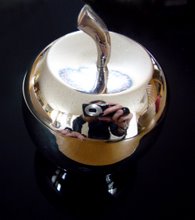
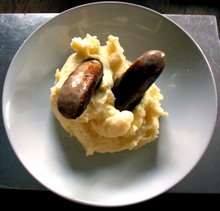
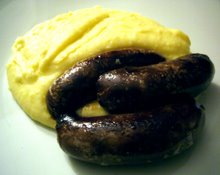
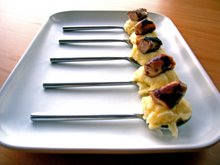

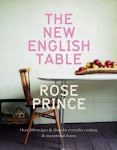
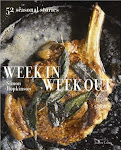
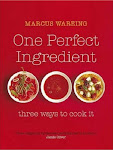


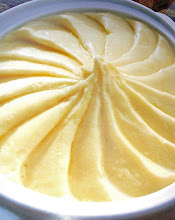

No comments:
Post a Comment